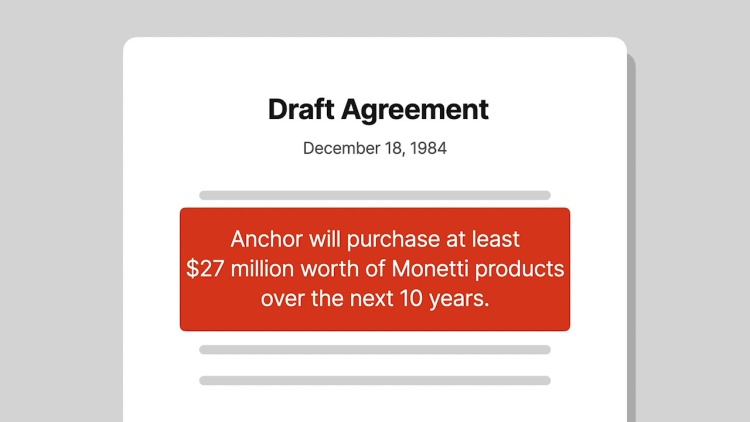Monetti, S.P.A. v. Anchor Hocking Corp.
United States Court of Appeals for the Seventh Circuit
931 F.2d 1178 (1991)

- Written by Sean Carroll, JD
Facts
Anchor Hocking Corp. (Anchor) (defendant) agreed in principle to become the sole U.S. distributor for Monetti S.P.A. (Monetti) (plaintiff) food service products for ten years. Monetti sent Anchor a draft agreement. Anchor did not sign the draft agreement, but an Anchor employee drafted a memo that incorporated all of the terms in Monetti’s draft agreement and added additional terms that Anchor wanted. The employee initialed the memo. Monetti, as was required in its draft agreement, gave Anchor all of the assets of Melform, a Monetti subsidiary, which had previously distributed Monetti’s food service products. In addition, there was a second Anchor memo, an internal memo on Anchor letterhead that included in “Exhibit A” all terms of the draft agreement except one. Davis, the drafter of this memo referred to it as the “summary agreement” with Monetti. Not long after Anchor wrote this second memo, Monetti brought suit for breach of contract. Anchor argued that the statute of frauds precluded the lawsuit because the agreement was not to be performed within one year and was not in writing. The trial court held that the suit was barred by the Uniform Commercial Code (UCC) statute of frauds. Monetti appealed.
Rule of Law
Issue
Holding and Reasoning (Posner, J.)
What to do next…
Here's why 907,000 law students have relied on our case briefs:
- Written by law professors and practitioners, not other law students. 47,100 briefs, keyed to 996 casebooks. Top-notch customer support.
- The right amount of information, includes the facts, issues, rule of law, holding and reasoning, and any concurrences and dissents.
- Access in your classes, works on your mobile and tablet. Massive library of related video lessons and high quality multiple-choice questions.
- Easy to use, uniform format for every case brief. Written in plain English, not in legalese. Our briefs summarize and simplify; they don’t just repeat the court’s language.





